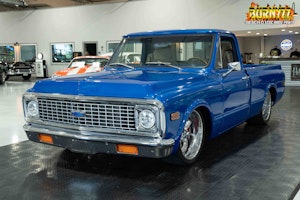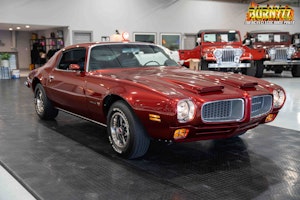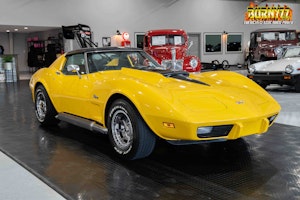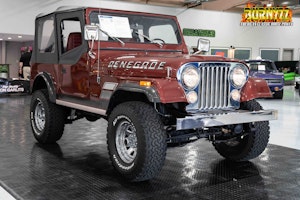Media | Articles
Early Porsche 911s leave a lasting impression
Teenagers know everything, right? Regardless of what they think, however, they can actually help predict the classic car market. Determining what’s hot, desirable, and valuable is often as simple as looking at cars that were new when collectors in their 30s and 40s were teens.
J.P. Canton agrees with the concept. But he’s an exception to the rule.
“My generation should love ’90s cars. Those were the cars we lusted after at 16, 17,” Canton said. “But I grew up around slightly older cars, and they imprinted on me.”
The “slightly older cars” that Canton is referring to are rear-engined, air-cooled Porsche 911s. He credits his affinity for Porsches to his father’s acquisition of several vintage models while J.P. was growing up. Mid-career, Canton’s engineer father went to work as a technician for a Porsche dealer. After a short stint there, he returned to engineering, but he was so taken by the brand that he bought a 1974 911 S. In 1994, Canton’s dad purchased a 1981 911 SC from the car’s original owner, and young J.P. was soon hooked on Porsches too.
“Growing up in the back seat of the SC made me want my own when I got a little older,” Canton said. “Other Porsches have come and gone through our garages, but that one has been consistent. It’s so intrinsically linked to my family and my childhood.”
Marketplace
Buy and sell classics with confidence
For years, Canton dreamed of owning one of his own, “an earlier 911, if possible. Beggars can’t be choosers, but that’s what I wanted.” It took some time, but he finally found a well-sorted 1972 Porsche 911 in San Francisco, before the model soared in value. Canton said that despite the high cost of parts for most 911s, “they’re remarkably reliable for an old brand, and tons of fun to drive. And the ’72s, in particular, are cool. They have two filler caps on the hood, one for oil and the other for gas. It’s a unique model year.”
Canton has owned older cars that were “complete nightmares,” but that label does not apply to 911 models. “One of the most fantastic things about them is that they’re remarkably reliable for old enthusiast cars, which really counts a lot. Whether you enjoy working on cars or not, it isn’t fun if yours is constantly broken. That ruins the ownership experience.”
Canton believes that the 911’s rapid appreciation can be partially attributed to the classic car community’s intense focus on “absolutely perfect, low-mileage and/or fully restored immaculate cars—down to the date code on the steering wheel.” However, he said there are plenty of well-maintained drivers out there “that don’t require Monopoly money.”
Canton believes 1970s and ’80s Porsche 911s are a great place to start. “They fall into the sweet spot of usability and technological progress,” he said. “If you get much newer than that, electronics are driving your car. If you go much older, it’s a bit too rudimentary. I’m a firm advocate in buying one from those two decades.”
And keeping it in the family, just like he did.
20170726014914)









